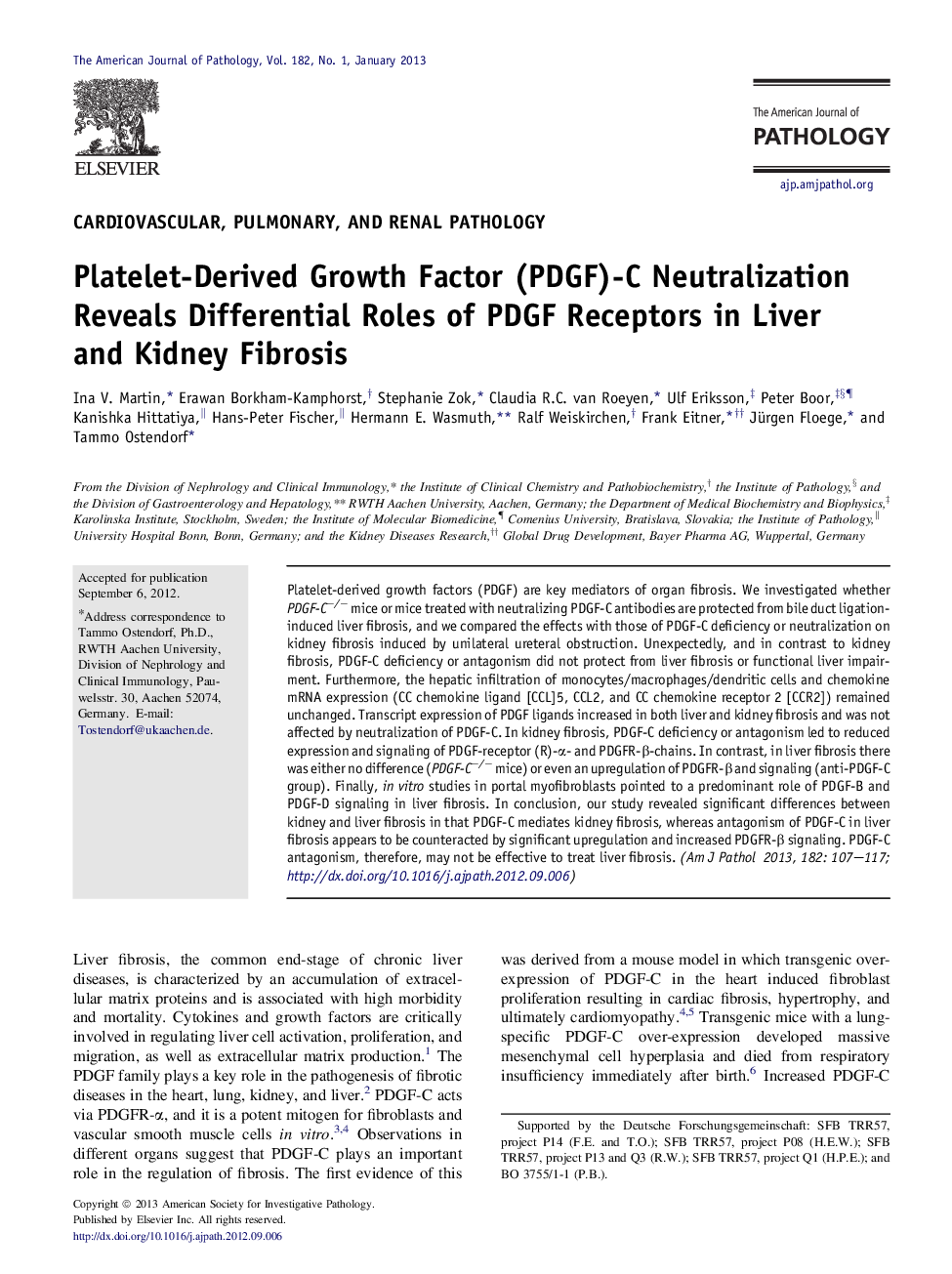| Article ID | Journal | Published Year | Pages | File Type |
|---|---|---|---|---|
| 5934758 | The American Journal of Pathology | 2013 | 11 Pages |
Platelet-derived growth factors (PDGF) are key mediators of organ fibrosis. We investigated whether PDGF-Câ/â mice or mice treated with neutralizing PDGF-C antibodies are protected from bile duct ligation-induced liver fibrosis, and we compared the effects with those of PDGF-C deficiency or neutralization on kidney fibrosis induced by unilateral ureteral obstruction. Unexpectedly, and in contrast to kidney fibrosis, PDGF-C deficiency or antagonism did not protect from liver fibrosis or functional liver impairment. Furthermore, the hepatic infiltration of monocytes/macrophages/dendritic cells and chemokine mRNA expression (CC chemokine ligand [CCL]5, CCL2, and CC chemokine receptor 2 [CCR2]) remained unchanged. Transcript expression of PDGF ligands increased in both liver and kidney fibrosis and was not affected by neutralization of PDGF-C. In kidney fibrosis, PDGF-C deficiency or antagonism led to reduced expression and signaling of PDGF-receptor (R)-α- and PDGFR-β-chains. In contrast, in liver fibrosis there was either no difference (PDGF-Câ/â mice) or even an upregulation of PDGFR-β and signaling (anti-PDGF-C group). Finally, in vitro studies in portal myofibroblasts pointed to a predominant role of PDGF-B and PDGF-D signaling in liver fibrosis. In conclusion, our study revealed significant differences between kidney and liver fibrosis in that PDGF-C mediates kidney fibrosis, whereas antagonism of PDGF-C in liver fibrosis appears to be counteracted by significant upregulation and increased PDGFR-β signaling. PDGF-C antagonism, therefore, may not be effective to treat liver fibrosis.
